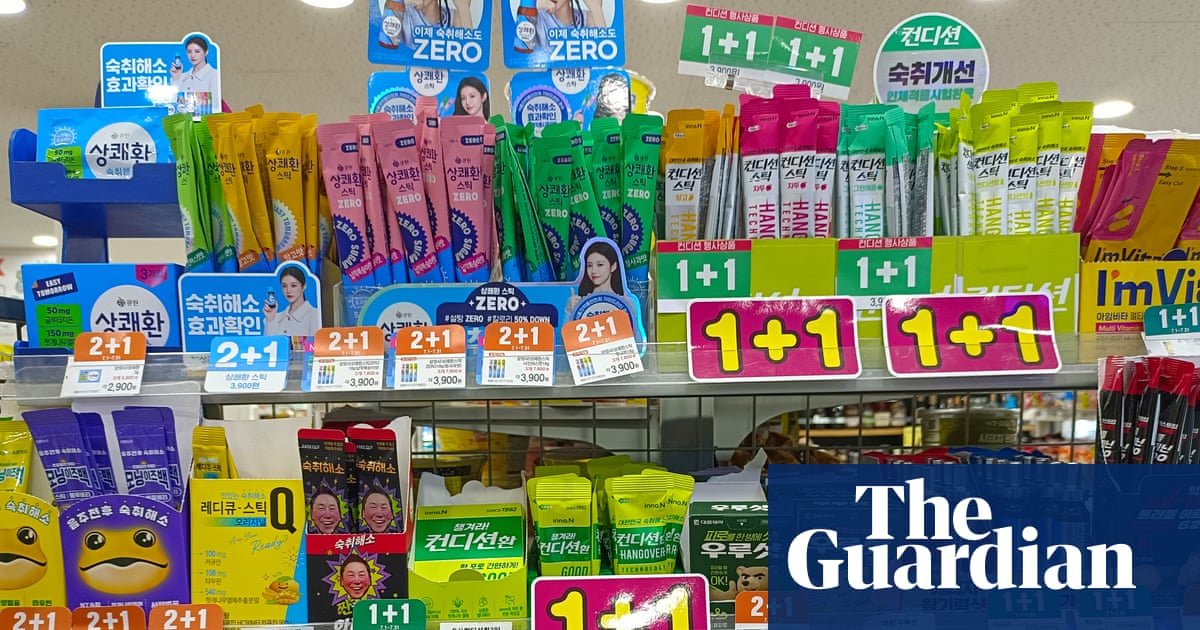
"Eighteen years ago, people didn't even know the name of this ingredient, says 58-year-old Gil Sa-hyeon, holding up a cluster of dried brownish stems. Now it's everywhere. His shop, Joseon Yakcho, sits in the heart of Seoul's Yangnyeongsi Market, South Korea's largest traditional medicinal herb market, its streets lined with shops displaying buckets of herbs such as liquorice root and cinnamon bark that spill on to the pavements, filling the air with their distinct, earthy aroma."
"Most contain extracts of hovenia dulcis, though some use other ingredients said to help, including red ginseng, milk thistle or even seaweed. The country's hangover cure market reached approximately 350bn won (190m) in 2024, according to NielsenIQ Korea, up 10% from the year before. Despite the market's growth, South Koreans are actually drinking less, with per-capita alcohol consumption falling steadily since 2015 and post-pandemic shipments of beer and spirits still below 2019 levels."
Hovenia dulcis, the oriental raisin tree, has become central to South Korea's hangover cure industry, appearing across traditional markets and convenience-store products. Traditional remedies such as haejangguk remain popular as morning-after rituals, often featuring napa cabbage, dried pollack or congealed oxblood. Commercial offerings include drinks, jelly sticks and tablets, many containing hovenia extracts as well as red ginseng, milk thistle or seaweed. The hangover market reached about 350 billion won in 2024, up 10% year-on-year. Despite market growth, per-capita alcohol consumption has fallen since 2015, with analysts attributing declines to reduced mandatory after-work drinking and a more health-conscious younger generation.
Read at www.theguardian.com
Unable to calculate read time
Collection
[
|
...
]